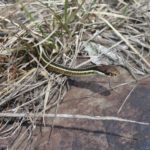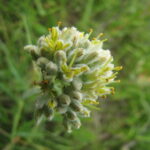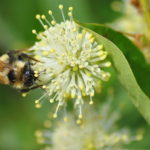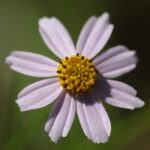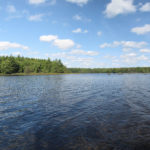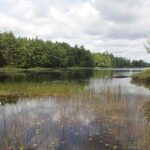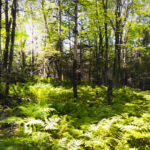Refuge for endangered plants and animals
The Tusket River watershed is a focus area for the Nature Trust because of its status as a federally and provincially recognized Priority Place for providing important habitat for at-risk Atlantic Coastal Plain Flora species. This region of southwest Nova Scotia holds some of the highest global concentrations of these rare plants, and protecting their remaining habitat is essential to ensuring their survival.
Atlantic Coastal Plain Flora are a unique group of more than 90 unrelated plants that are mainly found on the flat land along the Atlantic Coast from Florida to Nova Scotia (the “Atlantic coastal plain”). The group is composed of many plants with the same habitat needs, that are all “disjunct” (geographically separated) from the next closest populations (in New England). How they got here remains a mystery, but they are thought to have persisted on certain lakeshores and bogs in Nova Scotia for more than 10,000 years! Now, we risk losing them from the province forever due to encroachment into their habitat from cottage development, and changes to water chemistry from nearby residences and industry. 11 species of Atlantic Coastal Plain Flora are currently listed as species at risk under the federal Species at Risk Act and provincial Nova Scotia Endangered Species Act.
Along the extensive shorelines around the many lakes in this area, rare species including Redroot, Buttonbush, Pink Coreopsis, and Plymouth Gentian continue to survive. These shores also provide habitat for Eastern Ribbonsnake, a nationally threatened snake whose populations have been challenged by habitat loss and habitat degradation. The intact forests here also work to keep the shorelines healthy for rare species and people by absorbing excess nutrients and pollutants before they reach the shore.

